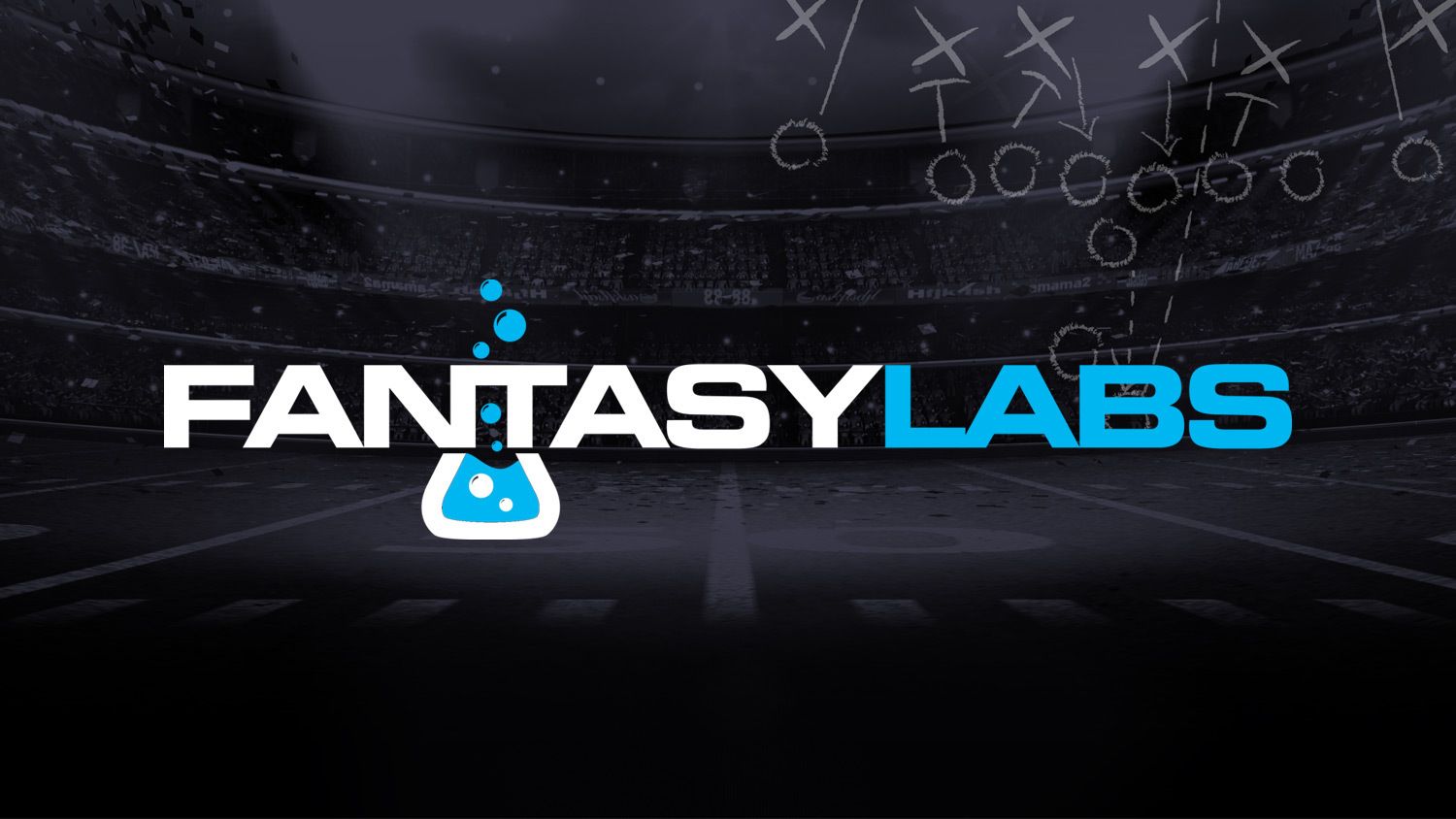NASCAR wraps up its three-race west coast swing at Phoenix Raceway.
Phoenix is a one-mile flat track, and the big news this weekend is the reduction in downforce and drag thanks to the new aerodynamic package. That has created more slipping and sliding, requiring the drivers to get on and off the throttle more. As a result, there’s also been more tire falloff than we’ve seen in recent years at Phoenix.
This makes practice an even more useful tool than in prior years, as long-run speed should factor into play like it did in the Xfinity race.
Armed with that information, as well as track and similar-track history for each driver, we have plenty of information at our disposal to make informed lineup decisions.
Before we jump into my picks, don’t forget all my NASCAR projections can be found in the NASCAR Models on FantasyLabs, complete with floor, ceiling, median, and ownership projections.
Let’s not skip the best part — my Perfect% metric — a metric that tells you how often certain racers appear in the optimal lineup when running 10,000 race simulations.
And don’t forget about the tools that FantasyLabs has to offer, like our Lineup Optimizer to effortlessly create up to 300 lineups, or our Lineup Builder if you like to hand-build your lineups.
Here are my NASCAR DFS picks for Sunday’s United Rentals Work United 500 at Phoenix Raceway.
Phoenix DraftKings DFS Cash Game Picks
Kyle Larson ($11,100): Without question, Larson is the class of the field this weekend. He ran the fastest time over every long-run segment in practice, and he backed it up by qualifying on the pole, showing he has short-run speed as well.
Larson should rack up plenty of dominator points with the rocket ship that he has.
Speaking of dominator points, PrizePicks has set Larson’s line for laps led at 86.5 laps.
Aric Almirola ($6900): Almirola was part of the Stewart-Hass Racing (SHR) quartet that had a less-than ideal qualifying session, but these cars are set up to have solid long-run speed. Almirola had much less falloff than most other drivers over the long run, so moving forward won’t be too much of a challenge.
Almirola also excels at the short-flat tracks, posting a nearly 50% top-10 finish rate during his 35 races at the track type with SHR.
William Byron ($9800): I’m going to be a little different than what I think most people will do, and I’ll recommend Byron in cash games. He’s also obviously a great tournament play, as he’ll be used quite a bit less than Larson, but I want to rack up these dominator points instead of searching for place differential since the very bottom tier is so incredibly rough this week.
By using both Byron and Larson, we look set to lock in plenty of dominator points, especially if we pair them with one of the Toyotas.
Bubba Wallace ($8200): For me, that Toyota is Bubba Wallace. He has the best combination of long-run speed, place-differential potential, and price point as the cheapest Toyota outside of rookie Ty Gibbs, who has struggled so far in his Cup career and starts five spots further forward. Bubba was actually the fastest Toyota over the five and 10-lap averages, so there’s some sneaky potential here.
If you’re worried about the falloff between Bubba’s 10- and 15-lap averages, don’t be. Those came on different runs. He first ran 10 laps, brought the car in, and then went out for a 15-plus lap run later in the session when the track slowed down.
Phoenix DraftKings DFS Tournament Picks
The Toyotas: I like all the Toyotas as tournament plays this weekend because their long-run speed is there. All six Toyotas displayed little falloff over 10-plus lap averages in practice. If the long run plays out, they’ll all be good. Denny Hamlin or Tyler Reddick will probably be the highest played of this group. I wouldn’t mind a pivot off of them onto Christopher Bell or Martin Truex Jr.
Phoenix DraftKings DFS Paul Menard Pick of the Week
My super low-owned play this week that I love this week is Ty Gibbs ($6700).
Yes, I mentioned I liked all the Toyotas in the section above, but I want to specifically highlight Gibbs. Here’s why.
I think Chris Buescher, A.J. Allmendinger, and Ricky Stenhouse Jr. will all draw a lot more attention as guys who posted speed over various metrics in practice. They are also all cheaper, and they all start farther back than Gibbs. While I think all three of these other guys are plenty usable in tournaments, that should leave Gibbs under-utilized.
Plus, Gibbs is basically in a buy-low spot, having just one top-10 finish in his 18-race Cup career so far.
Phoenix may be the ideal track for him, as it’s just the second non-drafting track he’s returned to, along with last week’s race at Las Vegas.
However, Phoenix has been extra kind to him. That’s where he won last year’s Xfinity championship. He also won at Richmond — Phoenix’s best comparable track — as well as the short-flat track of Martinsville. He dominated the one-mile, short-flat track of New Hampshire, leading the most laps before running into troubles.
This aerodynamic change also puts him more on a level playing field with the veterans, as they are also all getting used to the new package.
Gibbs had very little falloff over his practice run, losing just 0.14 seconds between his five- and 15-lap averages, ranking behind only Reddick and Almirola among competitive cars.
My model puts Gibbs in the optimal lineup 11% of the time compared to his 7% projected ownership. I don’t mind getting a bit of leverage here and playing Gibbs in about one-sixth of your lineups if you are multi-entering in big tournaments.







